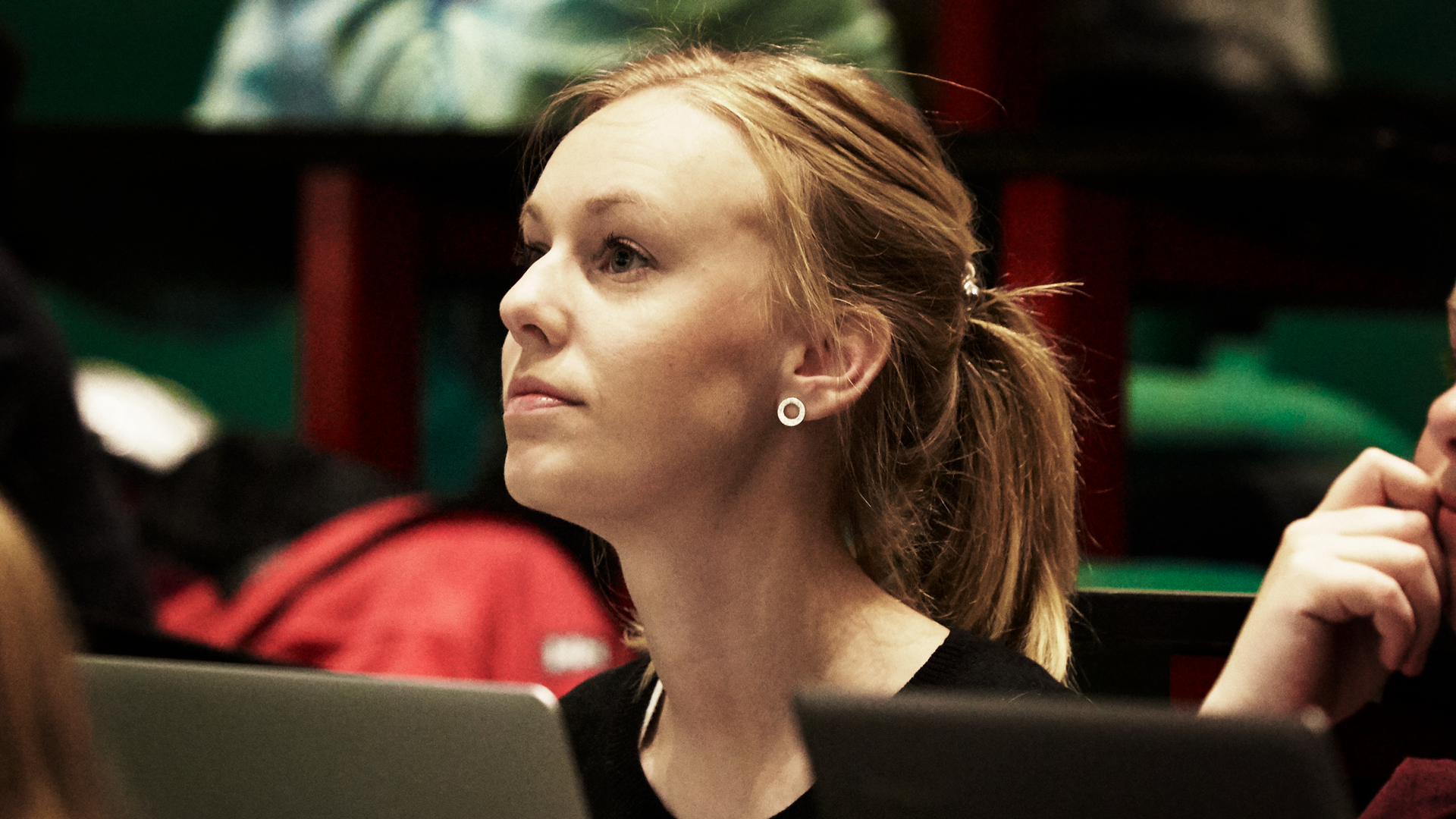Prerequisites for Communication Technologies and System Design
Academic requirements for this programme
National Applicants (holding a Bachelor from Denmark)
(Applicants must demonstrate skills in a number of the following subjects)
- Mathematics (linear algebra, analysis, diferential equations, fourier transforms, probability theory)
- Linear systems and circuit theory (time continuous and time discrete systems)
- Analog and digital design (emphasis on digital design)
- Software engineering including programming (C or equivalent)
- Fundamental classical electromagnetics in simple media
- Basic telecommunication, data communication, or communication theory
The merits and qualifications of the applicants will be considered individually, based on the submitted material. The level of the qualifications compared to other applicants will also be of importance.
Notice that the MSc Eng programme is very broad such that each prerequisite is not of equal use in all specialisations. This is described further with the specialisations and the descriptions for the individual courses.
The following BSc Eng programmes at DTU give students legal rights to admission to the MSc Eng programme in Communication Technologies and System Design:
The following BSc Eng programmes at DTU give students access to admission to the MSc Eng programme in Communication Technologies and System Design:
- Engineering Physics
- General Engineering, Cyber Systems
- Earth and Space Physics and Engineering
- Electrical Engineering
- Software Technology
- Computer Engineering
Students holding a BSc Eng in Electronics or Computer Science have access to be admitted to the MSc Eng in Communication Technologies and System Design provided that their programmes have included elements of communication technologies. The DTU BSc Eng programmes listed serve as a guideline.
Bachelors in Software Engineering from The Faroe Islands have access to admission.
Students from the following Bachelor in Engineering (BEng) programmes at DTU:
and students from BSc Eng programme:
may be admitted subject to having completed 10 ECTS credits from the list below:
| 02158 | Concurrent Programming | 5 | point | Autumn E1B (Thurs 13-17) |
| 30035 | Engineering Electromagnetics | 10 | point | Autumn E1A (Mon 8-12) and Autumn E5A (Wed 8-12) |
| 30400 | Electromagnetics | 10 | point | Autumn E1 (Mon 8-12, Thurs 13-17) |
| 30405 | Introduction to Wireless Technologies | 5 | point | Spring F1A (Mon 8-12) |
| 34020 | Optics and photonics | 5 | point | Spring F1B (Thurs 13-17) |
| 34120 | Electromagnetism for communication | 5 | point | Spring F1B (Thurs 13-17) |
| 34210 | Introduction to digital communication | 5 | point | Spring F3A (Tues 8-12) |
| 34313 | Introduction to Data Communication Networks | 5 | point | Autumn E4B (Fri 8-12) |
| 34315 | Internet of things – application and infrastructure implementation | 5 | point | Spring F2B (Thurs 8-12) |
| 34322 | Communication Network for Control and Data Acquisition | 5 | point | Spring F4A (Tues 13-17) |
| 34333 | Technologies for Mobile communication and cellular IoT | 5 | point | Spring F5A (Wed 8-12) |
| 34334 | Advanced Data Networks and Cyber Security | 5 | point | Autumn E2A (Mon 13-17) |
| 34338 | Telecommunication programming projects with Arduino | 5 | point | January |
10303 | Faststoffysik og nanoskala materialefysik Condensed Matter Physics and Nanoscale Materials Physics |
(offered prior to Sept 2024) may also count towards fulfilling the 10 ECTS requirement.
Other National and International (holding a Bachelor from outside Denmark) Applicants
B Eng in IT or in Electrical Engineering from other Danish universities and International applicants are admitted if they fulfill the requirements above or similar requirements.
The academic requirements may be fulfilled differently. This will be evaluated on a case-by-case basis by the head of study.
General admission requirements
Only applicants holding a relevant Bachelor of Science in Engineering, a Bachelor in Engineering (diplomingeniøruddannelse) or a Bachelor of Natural Science degree can be admitted to a Master of Science in Engineering programme. The bachelor's degree must be less than ten years old.
The individual MSc Eng programme states in detail which bachelor programmes qualify and whether applicants must complete supplementary educational activities.
Requirements for supplementary educational activities can equate to up to 30 ECTS credits and are specified as a list of courses under the individual MSc Eng programmes.
The specific requirements must be met before graduating from the bachelor's programme or in connection with conditional admission to a particular MSc Eng programme. The courses must be passed prior to the commencement of studies within one year from the conditional admission.
Supplementary educational activities in connection with conditional admission to an MSc Eng programme do not form part of the MSc Eng programme, and tuition fees are charged. If the supplementary courses have not been passed within the specified deadlines, the conditional admission to the programme is withdrawn.
The Master of Science in Engineering programmes are offered in English. Therefore applicants must demonstrate proficiency in English (B-level, IELTS, TOEFL, CAE) Applying for an MSc at DTU - Language test requirements
DTU offers an Honours Programme as part of all MSc Eng. programmes. The admission requirements are described at https://www.dtu.dk/english/education/graduate/honours-programmes
Specific prerequisites for the Industry MSc Eng Programmes
The prerequisites are similar to the specific ones that apply to the 2-year-programmes, but in addition, the applicant must have a job relevant to the studies with a workload of at least 25 hours a week, or the applicant may be self-employed in a start-up company. Read more about the rules on https://www.dtu.dk/english/education/graduate/industry-master-of-science-in-engineering

